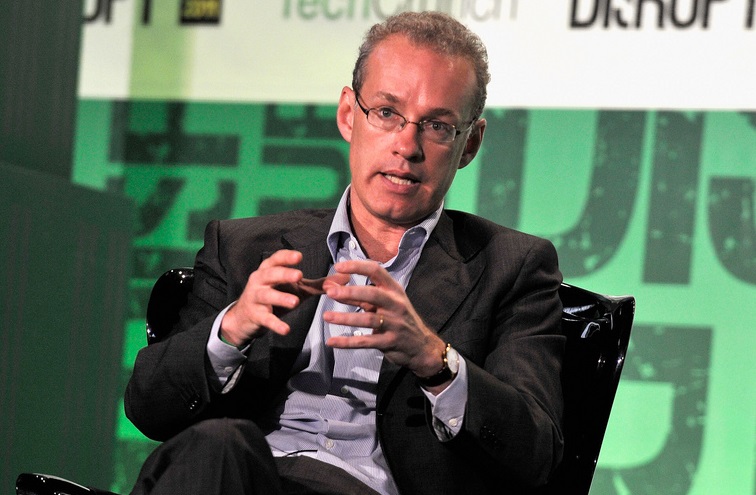Kevin Ryan has become very wealthy by being at the right place at the right time — including at online ad network DoubleClick, which he joined as its twelfth employee and eventually ran as CEO (it was later acquired, twice) — as well as co-founding numerous companies, including the software company MongoDB, which is currently valued at roughly $30 billion as a publicly traded company. (Ryan still owns “at least half my shares” in the company, he says.)
The other day, we talked with Ryan about his biggest, newest bet, which is on healthcare tech. As we reported earlier, his investment firm AlleyCorp is plugging $100 million of largely Ryan’s own capital into starting and funding outfits in the space — and that’s atop the roughly 20 related bets the outfit has made already. We wondered how he became so involved when his earlier projects were almost entirely unrelated. You can hear that conversation here or check out excerpts below.
TC: For someone not paying attention, your extreme focus on healthcare tech is surprising. What spurred your initial interest?
KR: One of the things that I always do from an AlleyCorp point of view is think about, what are the five- to 10-year trends that we want to bet on. Some areas can be overcrowded, and you think there’s no opportunity there, everything’s already been done. And sometimes you think there’s a big opportunity. And so starting two or three years ago, I just felt like both in New York and in healthcare in general, there were huge opportunities because there are so many aspects of the healthcare system that just don’t work well. It’s incredibly expensive, the electronic records are not great, it’s super inefficient. Most of us are very frustrated by this whole healthcare system, which means opportunities.
TC: You’re overseeing mostly your own capital here. Why not take on billions of dollars of outside capital to invest, which, in this current market, as a proven entrepreneur and investor, you could presumably do?
KR: Partly because the area of the ecosystem that I like to play in and am most comfortable and know the best is early stage. So do I want to invest in some company that’s worth $3 billion and hope it gets to $10 billion? That’s not really where I play. I want to be in the early stage, where it’s most risky, and that just requires less capital. We’re not capital constrained, by the way, or we wouldn’t be launching all these other things [including incubating a number companies inside AlleyCorp like Nomad Health, which raised a $63 million round earlier this year, and Pearl Health, which closed an $18 million round in September].
When we start a new company, putting in $1.5 million to $2 million is what it takes to get a company off the ground, then we raise money [from] outside and if we need to raise a lot of money, we raise a lot of money, and we keep investing. We try and cap our investment in any one company at around $10 million. But no, there’s lots of opportunities. And so this is where I want to play.
TC: And this model works even in a world where we’re now seeing $100 million seed rounds?
KR: The changed environment only helps us. Take Pearl Health. We put in $1.5 millionish into that company and start with a big equity position. It depends on the company but we’ll have somewhere between our partners probably 30% to 60% because the management team has a lot and sometimes we have co-founders in there as well, so it’s a big position.
Then a firm like Andreessen Horowitz comes in at a big valuation, a big step up — and we put another $3 million or $4 million into that round — but we’re the ones choosing who comes in. And, by the way, if there’s a round that happens at, I don’t know, $400 million, at that point, we’ll probably stop investing. That’s what happens with seed funds. Other large funds will come in, we’ll be diluted down, and that’s not a problem. Our money is most effective when we think we can make 10 times our money.
TC: So you’re not interested in participating in at the later stages.
KR: No. I’ve occasionally invested up. We just put in a bunch of money into Nomad, and Nomad is at roughly a $250 million valuation. But I think it’s a $2 billion company that can be created, so I still feel good about [our bigger investment], but it’s probably the last round that we will invest in. There are other people who play the role of putting in money and thinking they’re going to get a 2x or 3x return on that, which is fantastic for their fund. They’re much later stage; they’re only going to be in [a company] for five years. We want to put our money in, be in for nine years, and make 100 times our money,
TC: A lot of your contemporaries are beginning to transition out of the venture industry, or out of their firms, at least. I did wonder how you’re thinking about this. Do you have a right-hand person at AlleyCorp? What happens as you decide to eventually step back?
KR: First, I don’t think that’s going to happen any time soon. But you know, it’s Brenton [Fargnoli], running the healthcare effort; it’s Wendy [Tsu] who is in the non-healthcare space. And then my guess is we’ll have two or three other partners a year from now and I would effectively be the managing partner of the firm. But I’m good for another 10 years.
Kevin Ryan’s AlleyCorp is giving these physicians $100 million to invest in healthcare






























Comment